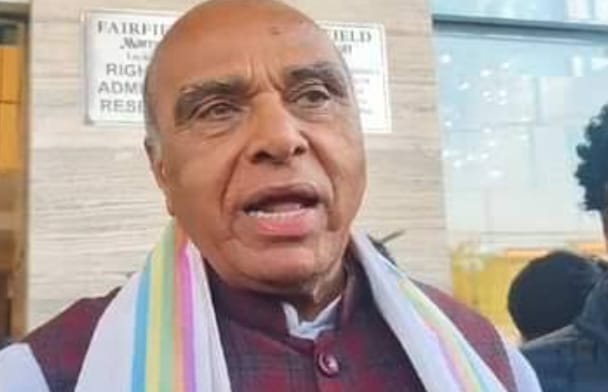– Akhilesh Tripathi
Lucknow: The Uttar Pradesh government has, for the first time, officially declared that 78% of the land under the UP Waqf Board is recorded as government property. This announcement was made during a meeting of the Joint Parliamentary Committee (JPC) on the Waqf (Amendment) Bill 2024 held in Lucknow.
The final meeting of the JPC, which was established to gather feedback on the Waqf Amendment Bill, took place here Tuesday. It was chaired by MP and JPC Chairman Jagdambika Pal. During the session, Monica S. Garg, Additional Chief Secretary for Minority Welfare in Uttar Pradesh, stated, “Out of the total 14,000 hectares of Waqf land in the state, more than 11,000 hectares are listed as government land in revenue records.”
Officials from the Revenue Department elaborated further, explaining, “In Uttar Pradesh, 58,000 Waqf properties fall under categories 5 and 6 in revenue records, which refer to government and Gram Sabha land.” Currently, the Waqf Board in Uttar Pradesh have 1.30 lakh registered properties.
The Revenue Department also informed the committee that the Waqf Board has laid claim to several government-owned properties, including land belonging to Balrampur Hospital, Awas Vikas, the Lucknow Development Authority (LDA), and other development authorities, as well as land under the Archaeological Survey of India (ASI) while these lands are classified as government-owned in official records.
The UP government emphasised that properties claimed by the Waqf Board, including those managed by Awas Vikas and LDA, were lawfully acquired by these authorities from municipal bodies in accordance with established regulations.
Also, the government addressed the status of 60 properties identified as Waqf land by the Sachar Committee. It also informed the JPC about a newly introduced policy to resolve disputes over Waqf properties. Under this policy, any Waqf claim must be verified against the 1952 revenue records. Only after such verification will claims related to the removal of encroachments be considered.
Prominent landmarks such as Lucknow’s Bara Imambara, Chota Imambara, and Ayodhya’s Begum Ka Maqbara were also highlighted as being located on government land. Representatives of the Waqf Board, present at the meeting, strongly contested these claims.
The JPC meeting was attended by several members, including MPs Imran Masood, A. Raja, Lavu Srikrishna Devarayalu, Braj Lal, Ghulam Ali, Asaduddin Owaisi, Mohd. Nadimul Haque, Sanjay Jaiswal, and Mohibbulllah Nadvi.
Jagdambika Pal, the JPC Chairman, announced that the committee would submit its report during the Budget Session of Parliament starting on January 31.
He stated, “The report will provide recommendations on every provision of the Waqf Amendment Bill 2024, including any differing opinions from members. This legislation is intended for the welfare of the minority community.”




